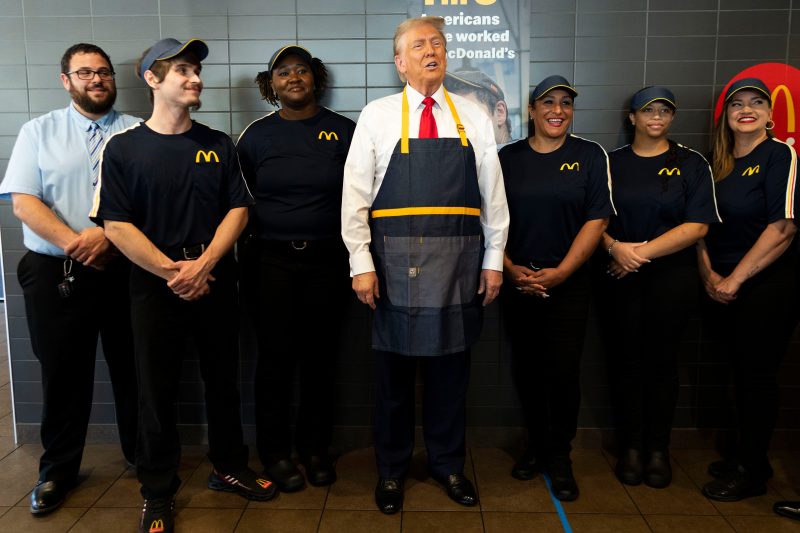The recent claims made by former President Donald Trump regarding Vice President Kamala Harris and McDonald’s have once again brought the issue of misinformation to the forefront. Despite Trump’s assertion that McDonald’s confirmed his allegations about Harris, the fast-food giant has categorically denied any involvement in such statements. This case highlights the importance of verifying information before spreading it, especially when coming from unreliable sources.
The power of social media cannot be underestimated in today’s information age. False claims and misleading information can spread like wildfire on platforms such as Twitter, where Trump made his assertion about Harris and McDonald’s. The ease and speed with which misinformation can be disseminated make it crucial for individuals to exercise caution and critical thinking when encountering such content.
With the rise of deepfakes, bots, and manipulated images, distinguishing truth from fiction has become increasingly challenging. The case of Trump’s claim about Harris and McDonald’s serves as a cautionary tale about the dangers of believing everything we see and hear online. It is vital for individuals to question the source of the information, cross-reference it with reputable sources, and carefully evaluate its credibility before accepting it as fact.
In the age of disinformation, media literacy has never been more important. Schools, organizations, and individuals must prioritize educating themselves and others on how to spot fake news and navigate the digital landscape responsibly. Fact-checking websites, such as Snopes and FactCheck.org, can be valuable resources in verifying the accuracy of claims and debunking false information.
Moreover, holding those who spread misinformation accountable is essential in combating the spread of fake news. Platforms like Twitter and Facebook have taken steps to address the issue by implementing fact-checking measures and warning labels on misleading content. However, individuals also bear a responsibility to think critically and act ethically when sharing information online.
Ultimately, the case of Trump’s claim about Harris and McDonald’s underscores the need for vigilance and discernment in the digital age. By promoting media literacy, fostering a culture of critical thinking, and holding purveyors of misinformation accountable, we can work towards a more informed and responsible society. Only by collectively challenging falsehoods and upholding the truth can we combat the spread of fake news and safeguard the integrity of public discourse.

